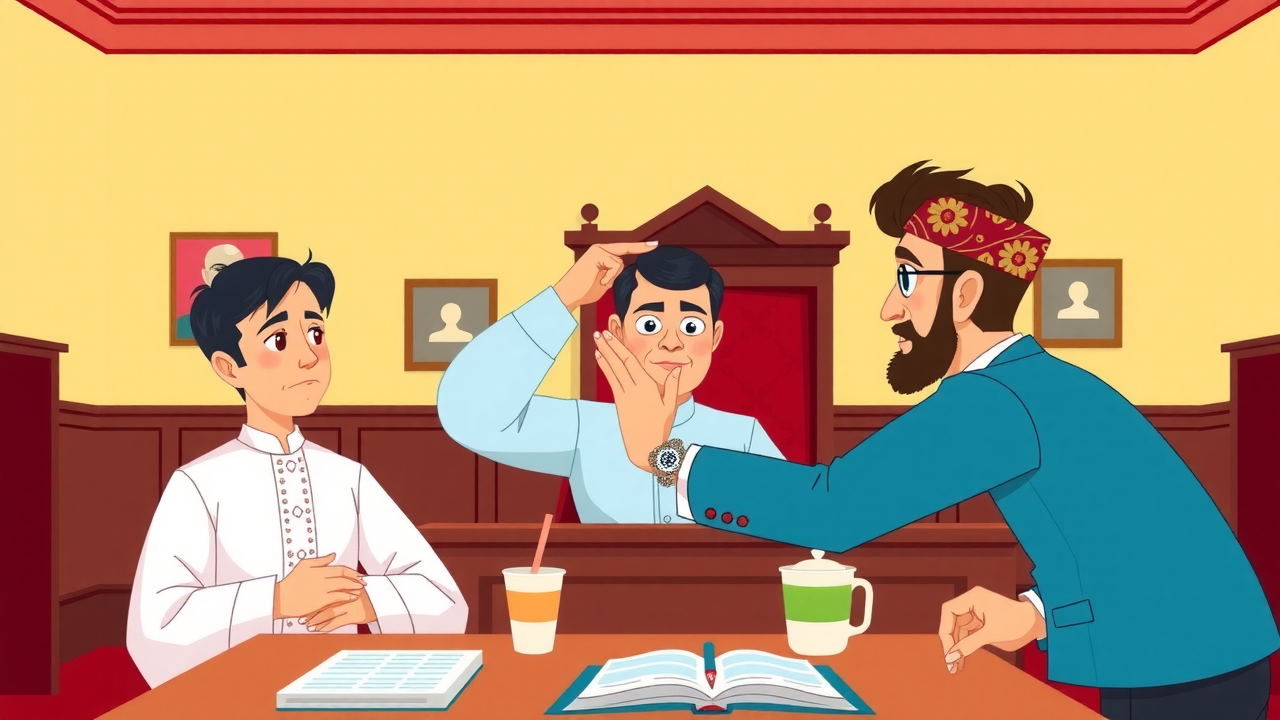The Supreme Court dismissed a petition by a man claiming his brain was controlled through a machine, calling it "bizarre." The Court found no grounds for intervention after a report from the Legal Services Committee.

LITT Law for lawyers and teams
In a recent ruling, the Supreme Court of India dismissed an unusual petition filed by a man claiming his brain was being controlled by others through a specialized machine. The petitioner alleged that certain individuals had acquired a “human brain reading machinery” from the Central Forensic Scientific Laboratory (CFSL), Hyderabad, and used it on him. Seeking redress, he approached the Court with a plea to order the deactivation of the alleged device. The case, marked by its eccentric claims, was ultimately rejected by a bench comprising Justices Sudhanshu Dhulia and Ahsanuddin Amanullah.
Supreme Court’s Initial Reaction and Dismissal
- The Supreme Court described the petition as "bizarre," with Justice Dhulia remarking, “We see no scope or reason as to how we can interfere in this matter.”
- The case originated from a writ petition the petitioner filed in the Andhra Pradesh High Court, where he appeared in person. The petitioner, a teacher, insisted that individuals had obtained the machine from CFSL Hyderabad and used it to influence his thoughts and actions.
- Seeking judicial intervention, he requested the Court to order the "deactivation" of this alleged brain-controlling device.
Initial Dismissal by the Andhra Pradesh High Court
- The Andhra Pradesh High Court had initially dismissed the petition in November 2022. In its counter-affidavit, the CFSL and the CBI clarified that no such forensic examination had ever been conducted on the petitioner.
- The affidavit further noted that there was no reason to consider "deactivating" a device as alleged since such a machine was neither possessed nor operated by CFSL.
Escalation to the Supreme Court and Court’s Interaction Directive
- Following the High Court’s decision, the petitioner sought a Special Leave Petition in the Supreme Court. On September 27, 2024, the Supreme Court, rather than dismissing the plea outright, expressed a willingness to understand the petitioner’s grievance fully.
- The bench directed the Supreme Court Legal Services Committee (SCLSC) to arrange an interaction in the petitioner’s mother tongue, hoping to clarify his claims and assess any substantive concerns he may have had.
Findings by the Supreme Court Legal Services Committee
- After conducting the interaction, the SCLSC reported back, detailing that the petitioner’s primary request was the “deactivation” of a supposed device controlling his brain.
- In response, the Court commented on the unusual nature of the claim, stating, “This is the bizarre prayer(s) which has been made by the petitioner whose specific allegation is that there is some machine which is being used and operated at the hands of some persons, by which the ‘brain’ of the petitioner is being controlled.”
- After considering the report and the lack of evidence, the Supreme Court dismissed the petition, concluding that there was no legal basis for intervention.
Court’s Reasoning and Conclusion
- The Supreme Court’s decision reflects a careful, measured approach to handling extraordinary claims. By arranging an interaction in the petitioner’s mother tongue through the SCLSC, the Court ensured that his concerns were clearly understood before dismissing the case.
- However, with clear denials from CFSL and CBI and no substantiating evidence, the Court determined that it had no grounds for interference, describing the petition as beyond judicial intervention.





